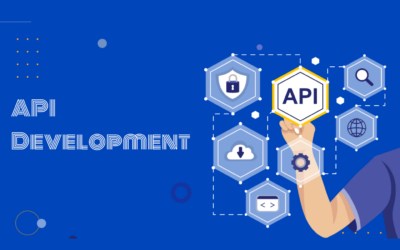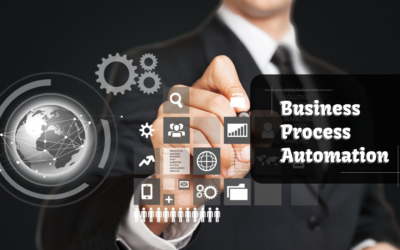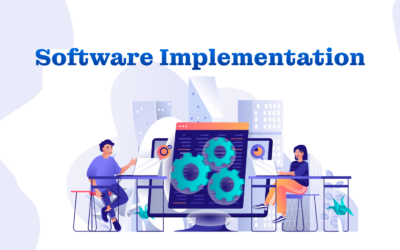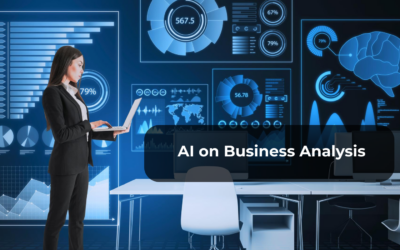Impact of AI on Next-Gen Business Analytics

Introduction
In today’s fast-paced business environment, staying ahead of the competition requires making informed decisions backed by data. Advanced data analytics has become a crucial aspect of modern business operations, enabling organizations to extract valuable insights and drive growth. With the advent of artificial intelligence (AI), business analytics has undergone a significant transformation.
In this article, we will explore the impact of AI on next-generation business analytics and understand how it is revolutionizing data-driven decision-making.
1. Artificial Intelligence in Business Analytics:
Artificial intelligence has revolutionized various industries, and business analytics is no exception. AI-powered tools and algorithms can process vast amounts of data and uncover hidden patterns, trends, and correlations. By leveraging AI in business analytics, organizations can gain a deeper understanding of their customers, market trends, and competitors, leading to improved decision-making and strategic planning.
2. Advanced Data Analytics:
AI enhances traditional data analytics techniques by automating complex tasks and accelerating data processing. Advanced data analytics combines statistical models, algorithms, and AI technologies to analyze large datasets and extract valuable insights. With AI, businesses can uncover complex relationships within their data, identify anomalies, and predict future trends more accurately.
3. Predictive Analytics Solutions:
Predictive analytics is a subset of advanced data analytics that uses historical and real-time data to forecast future outcomes. AI plays a crucial role in predictive analytics by leveraging machine learning algorithms to analyze vast amounts of data and make accurate predictions. By using predictive analytics solutions, businesses can anticipate customer behaviour, optimize marketing campaigns, and make data-driven decisions that maximize profitability.
4. Data-Driven Decision-Making:
Data-driven decision-making is the process of making informed choices based on empirical evidence and statistical analysis. AI-powered business analytics provides organizations with the necessary tools and insights to make data-driven decisions. By combining historical and real-time data with AI algorithms, businesses can identify trends, detect opportunities, mitigate risks, and optimize their operations for better outcomes.
5. Machine Learning for Business Analytics:
Machine learning, a branch of AI, enables computers to learn from data and improve their performance without explicit programming. In business analytics, machine learning algorithms can analyze vast datasets to uncover patterns, make predictions, and automate decision-making processes. By employing machine learning for business analytics, organizations can gain a competitive edge by leveraging the power of data to drive innovation and efficiency.
6. Big Data Analytics Tools:
The proliferation of data in the digital age has given rise to big data analytics tools. These tools enable organizations to capture, store, process, and analyze large volumes of data from various sources. AI-driven big data analytics tools can handle the complexity and scale of big data, providing valuable insights that help businesses understand customer behaviour, optimize operations, and drive revenue growth.
7. Real-Time Data Analysis:
Real-time data analysis is the ability to analyze data as it is generated, enabling organizations to make immediate decisions based on up-to-the-minute information. AI-powered business analytics platforms can process and analyze real-time data streams, allowing businesses to detect anomalies, respond to events in real time, and gain a competitive advantage in dynamic markets.
8. Data Visualization in Business Analytics:
Data visualization is an essential component of business analytics as it helps transform complex data into easily understandable visual representations such as charts, graphs, and dashboards. AI-powered data visualization tools can process large datasets and generate interactive visualizations that enable stakeholders to explore data intuitively, gain insights quickly, and make informed decisions.
Why is Business analytics essential for a company?
🔹 Improved Efficiency: By utilizing business analytics, companies can identify inefficiencies and bottlenecks in their operations. It allows them to optimize processes, reduce costs, and improve overall efficiency. Analytics helps in streamlining workflows, identifying areas of improvement, and enhancing productivity.
🔹 Competitive Advantage: In today’s competitive market, gaining a competitive edge is crucial. Business analytics enables companies to identify market trends, monitor competitors, and develop effective strategies. By leveraging analytics, companies can make proactive decisions, spot emerging opportunities, and stay ahead of the competition.
🔹 Risk Management: Businesses face various risks, including financial risks, operational risks, and market risks. Business analytics helps in identifying and assessing these risks by analyzing historical data, detecting patterns, and predicting potential risks. It allows companies to take proactive measures and mitigate risks effectively.
🔹 Sales and Marketing Optimization: Business analytics plays a vital role in sales and marketing strategies. It helps companies understand customer buying patterns, target specific customer segments, and optimize marketing campaigns. By analyzing sales data and customer feedback, companies can personalize marketing efforts, improve customer engagement, and drive sales growth.
🔹 Performance Measurement: Analytics provides key performance indicators (KPIs) that help in measuring and monitoring company performance. By analyzing relevant metrics, companies can evaluate their progress, identify areas for improvement, and set achievable goals. Performance measurement through analytics ensures that companies stay on track and meet their objectives.
Conclusion:
Business analytics is necessary for a company as it enables data-driven decision-making, enhances efficiency, improves customer understanding, provides a competitive advantage, manages risks, measures performance, optimizes sales and marketing efforts, and drives innovation and business growth. It empowers companies to leverage data effectively and make informed decisions that positively impact their overall performance and success.
Artificial intelligence has transformed the field of business analytics, enabling organizations to harness the power of data like never before. With advanced data analytics, predictive analytics solutions, machine learning algorithms, and real-time data analysis, businesses can gain valuable insights, make data-driven decisions, and achieve a competitive advantage.
Are you looking for any IT Services such as Web design and Development, Mobile App Development, Digital Marketing Services and more? Connect Stridefuture Technology, which helps to meet your requirements.
{StrideFuture Technology, a full-service company specializing in Software Solutions and Consultancy services. We specialize in Personal, Business, IT Services, Web design and Development, Mobile App Development, Digital Marketing Services, and much more you can dream Virtually with us! Reach out for more service at StrideFuture Technology.}









